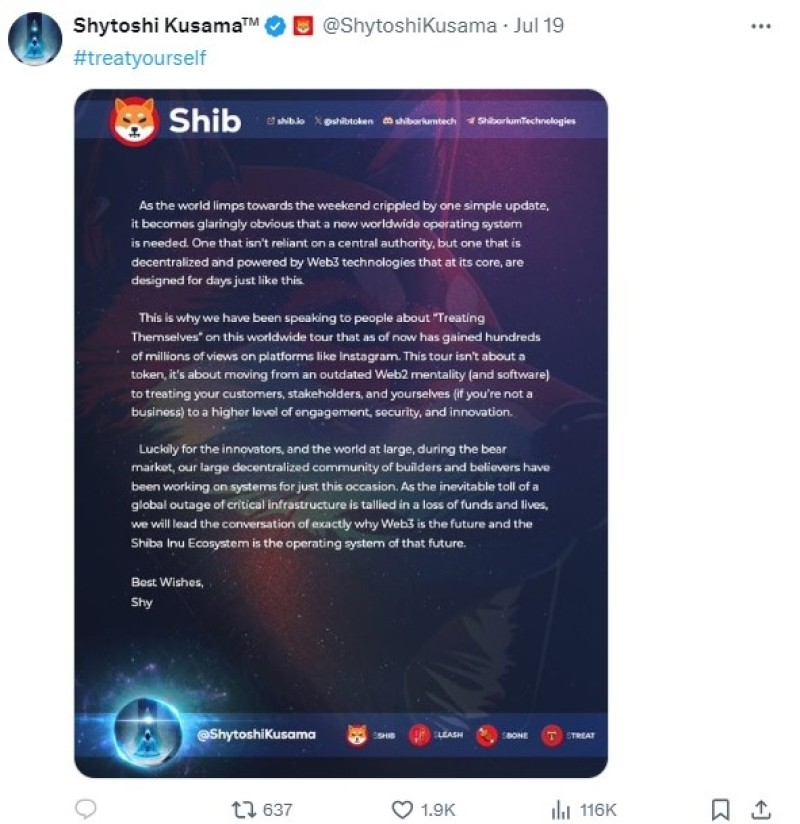Shytoshi Kusama, creator of Shiba Inu, argues that SHIB and the Web 3.0 ecosystem could offer solutions to the global IT disruptions caused by CrowdStrike’s recent system failures.
Shytoshi Kusama Proposes SHIB as a Solution to CrowdStrike Crisis
Shytoshi Kusama, the leading force behind Shiba Inu, has proposed that the Shiba Inu ecosystem could potentially address the recent IT crisis triggered by CrowdStrike's system failures. This suggestion highlights the evolving debate between traditional IT solutions and decentralized technology.
On Thursday, CrowdStrike, a major cybersecurity firm in the United States, reported a critical update issue that led to significant disruptions across IT systems globally. This flaw in the CrowdStrike Falcon EDR software caused widespread system failures, including the notorious "blue screen of death," impacting millions of Windows users and affecting sectors such as airlines, trains, and financial markets.
Shytoshi Kusama Advocates for Decentralized Solutions
Amid the chaos, Shytoshi Kusama has emphasized the pressing need for a new global operating system that is decentralized and free from central authority. He advocates for the adoption of Web 3.0 technologies, which he believes can offer more reliable and innovative solutions compared to traditional Web2 systems. Kusama views the Shiba Inu ecosystem as a prime example of how Web 3.0 can reshape the future of technology and business operations.

The CrowdStrike outage notably affected traditional financial institutions such as Bank of America, Wells Fargo, Chase Bank, and Capital One. However, Web 3.0 and cryptocurrency firms have largely remained unaffected. Polygon Labs and Bybit, for instance, confirmed that their operations continued normally, highlighting the resilience of decentralized systems against such disruptions. This incident underscores the shortcomings of current Web2 systems and bolsters the case for blockchain technology and digital assets like Shiba Inu.
Experts in the cryptocurrency sector are advising companies that still rely on Web2 technologies to reconsider their strategies. The CrowdStrike outage serves as a stark reminder of the vulnerabilities in traditional IT systems, which could drive more businesses towards blockchain solutions. Shytoshi Kusama’s assertions add to the growing narrative that decentralized technologies, exemplified by SHIB, could be pivotal in mitigating future IT crises.
Conclusion
As Shytoshi Kusama advocates for the integration of Shiba Inu and Web 3.0 technologies into mainstream operations, the recent CrowdStrike failure highlights the increasing need for robust, decentralized alternatives. The incident not only underscores the limitations of traditional IT systems but also reinforces the potential of cryptocurrency and blockchain technology to offer reliable solutions.
 Saad Ullah
Saad Ullah

 Saad Ullah
Saad Ullah


